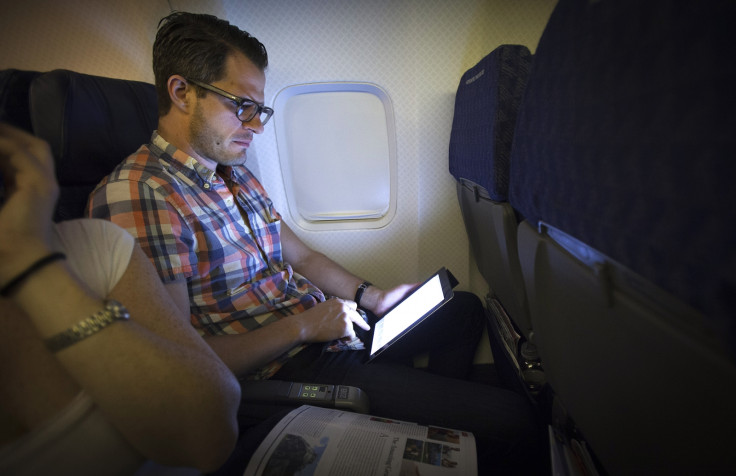Airline laptop ban increases potential for 'catastrophic' fires, warns UK pilot union
British Airline Pilots' Association warns that President Trump's ruling could cause uncontrollable fires.

Banning laptops and other large electronic devices from the cabins of commercial airplanes increases the potential for "catastrophic fires" mid-flight, the British Airline Pilots' Association has warned.
The association, which is known as Balpa and represents UK flight crews, was responding to claims that President Donald Trump's ban on laptops in the cabins of planes entering the US from certain countries could spread to the UK and Europe.
Is has been reported that the ban would prevent UK passengers from taking devices larger than a smartphone like the iPhone 7 into the cabin of flights to the US. All other electronics would have to go into the hold with checked-in luggage.
Balpa flight safety specialist Steve Landells said in a statement: "Given the risk of fire from these devices when they are damaged or they short circuit, an incident in the cabin would be spotted earlier and this would enable the crew to react quickly before any fire becomes uncontainable. If these devices are kept in the hold, the risk is that if a fire occurs the results can be catastrophic. Indeed, there have been two crashes where lithium batteries have been cited in the accident report."
UPS Airlines Flight 6, a Boeing 747-400F carrying cargo between Dubai and Cologne, crashed on 3 September 2010, killing both pilots. An investigation found a fire had started in the hold, which contained more than 80,000 lithium batteries. As a result, the Federal Aviation Administration highlighted the large number of batteries on-board and issued a restriction on the carrying of lithium cells in bulk on passenger flights.
South African Airways Flight 295 crashed in November 1987, killing all 140 passengers and 19 crew. The Boeing 747 suffered an in-flight fire in the cargo hold, which an official report suggested could have been started by the lithium batteries of computer equipment being transported by the flight.
The current ban, which was introduced by Trump in March, prevents laptops and tablet computers from the cabins of flights to the US from 10 airports in the UAE, Saudi Arabia, Qatar and Turkey. The ban is a response to the threat posed by terrorists boarding flights with explosive devices disguised as laptops and tablets.
Landells continued: "We don't doubt the security threats that have led to consideration of extending the ban on devices, but we urge authorities to carefully assess the additional fire risk from storing more personal electronic devices in the hold to ensure we're not solving one problem by creating a worse one."
Until now, official guidelines issued by the airlines and aviation authorities state devices with lithium batteries should be kept in the cabin, where any fire caused by them short-circuiting can be dealt with quickly, rather than left unnoticed in the hold.
© Copyright IBTimes 2024. All rights reserved.







